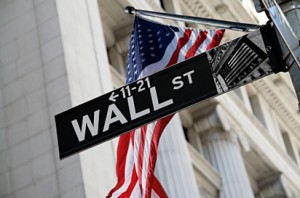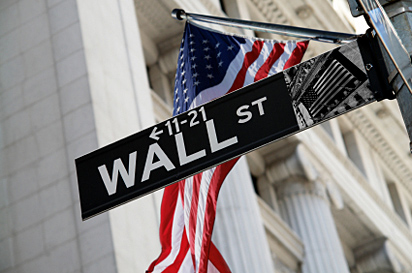 By Kevin G. Hall, McClatchy Newspapers –
By Kevin G. Hall, McClatchy Newspapers –
WASHINGTON — J.P. Morgan Chase & Co.’s stunning after-hours announcement Thursday of a $2 billion loss on a complex bet sent shock waves through the nation’s capital Friday, as lawmakers blamed financial regulators for continuing to allow the same risky activity that nearly sunk the global financial system four years ago.
J.P. Morgan had been considered the healthiest of U.S. banks, emerging from the 2008 crisis largely unscathed. CEO Jamie Dimon, boyishly handsome with a thick New York accent, is often referred to as “the king of Wall Street.”
But on Friday, investors humbled the king, sending the bank’s share price down by $3.78, or 9.28 percent, to $36.96. Other big-bank stocks sunk as well.
The massive blunder on the part of a bank perceived as the nation’s healthiest also cast an unwanted spotlight on the same federal regulators found to be asleep at the switch in the run-up to the 2008 financial crisis.
In the aftermath of that crisis, the Federal Reserve was given greater supervisory responsibility for large investment banks, which had transformed themselves into bank-holding companies in order to enjoy greater taxpayer support amid the crisis. Fed staffers are now located in the biggest banks and were supposed to be policing their risk-taking to protect the financial system.
“We can’t discuss supervisory information,” said Barbara Hagenbaugh, a Fed spokeswoman.
The Securities and Exchange Commission also was given greater powers to ensure that large banks properly disclosed risks from complex investments to their investors. Lawmakers said that J.P. Morgan did not fully disclose the risks from its soured bet in its annual report for 2011 or its report filed for the first quarter of 2011.
“It ought to be a concern to the SEC. They are the ones who ought to have a concern about that,” Sen. Carl Levin, D-Mich., said in a conference call with reporters. “The SEC should surely take a look at it.”
Levin heads the Senate’s Permanent Subcommittee on Investigations. His panel was instrumental, after the fact, in piecing together much of the malfeasance that led to the financial crisis. On Friday, though, Levin called it premature to determine whether he’ll hold hearings on J.P. Morgan.
The SEC regulates broadly on investor protection, but it narrowly regulates J.P. Morgan’s broker-dealer operations, and the losses appeared to be in an area of the bank regulated by the Fed. SEC spokesman John Nester declined to comment.
The Office of the Comptroller of the Currency regulates J.P. Morgan’s commercial banking activities and was mum, too.
“We don’t comment on specific bank supervisory matters,” said spokesman Bryan Hubbard.
The course of events Thursday night and Friday were all the more shocking because Dimon has been the leading industry critic of the Dodd-Frank Act, passed in 2010 to revamp financial regulation. Dimon dubbed the act Dodd-Frankenstein, alleging it would cost upward of $400 million to comply with the array of new rules designed to curb bad behavior on Wall Street.
The co-architect of the legislation, Rep. Barney Frank, D-Mass., noted in a statement that “J.P. Morgan Chase, entirely without any help from the government, has lost, in this one set of transactions, five times the amount they claim financial regulation is costing them.”
Frank and other lawmakers also argued that regulators must move forward more quickly on the so-called Volcker Rule provisions of the act to ban commercial banks from engaging in risky trading with their own capital that could imperil the financial system.
“The argument that financial institutions do not need the new rules to help them avoid the irresponsible actions that led to the crisis of 2008 is at least $2 billion harder to make today,” Frank said.
In a conference call with journalists, Levin and Sen. Jeff Merkley, D-Ore., a member of the Senate Banking Committee, called on bank regulators to rewrite draft rules designed to curb risky betting by the largest banks.
The provision in question is dubbed the Volcker Rule, named after former Fed Chairman Paul Volcker, who argued for a firewall between commercial and investment banking. The two senators got the Volcker Rule into the broad financial revamp but were disappointed when bank regulators issued draft rules that had huge loopholes.
“The draft rules at this point are way too lax. They don’t have the bright lines that are needed,” Merkley said.
The complex bet J.P. Morgan made is allowed under prior regulation, but under the wording of Dodd-Frank would be prohibited, once regulators enforce the Volcker Rule. Dimon on Thursday described the soured bet as an offsetting hedge gone bad. In fact, the bet on a basket of insurance-like financial products called credit-default swaps was actually a bet on the broad performance of the U.S. economy.
“This is not a hedge as we defined it in the law. Hedging is allowed, but this kind of portfolio hedging, or hedging on the direction of the economy, is not allowed,” Levin said. “We are very precise on the definition in our language.”
“It’s not a hedge. They don’t even call it a hedge. They call it an economic hedge, which is code for not really being a hedge. It’s really speculation,” said William Black, an economics professor at the University of Missouri-Kansas City and a former government litigator during the 1980s’ savings and loan crisis. “They have not learned any of the lessons from the crisis. They are too big to be efficiently managed … but this particular problem doesn’t come from size, it comes from a deliberate business strategy of taking very large risks while claiming it’s a hedge.”
J.P. Morgan’s bad bet also renewed debate on whether the largest banks should be forced to break up. Appearing on CNBC television Friday, former Federal Deposit Insurance Corp. Chairman Sheila Bair called anew for breaking up the biggest banks into “separately managed business lines.”
How much Dimon knew about the bet, which at one point had accumulated to $100 billion, according to The Wall Street Journal, remains unclear. In coming days, attention will shift to what was known by Dimon about Bruno Iksil, the London-based trader who executed the bets, and what was known by the company’s chief investment officer and the chief financial officer.
“What I think is going to be interesting is to find out to what extent we have a classic problem that basic monitoring tools were not in place,” said Bert Ely, a veteran bank-sector analyst. “Were some of their own internal policies violated in some fashion? Was he in fact a rogue trader, or did the others — the CIO, the CFO — did they sign off on the bet?”







